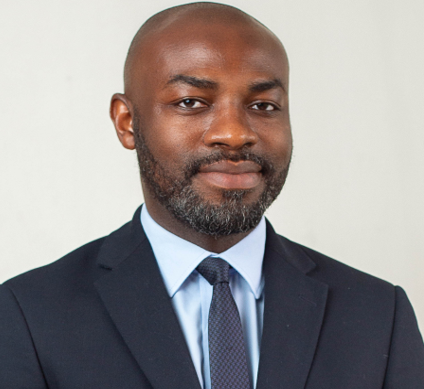By Issac FRIMPONG (PhD)
When I entered university in the early 2000s as a mature student and trained teacher, I expected rules to guide learning, not punish students. Instead, I encountered processes that were designed to frustrate rather than support.
Course registration meant chasing signatures from multiple departments before submitting a single form. Missing an in-person deadline could mean losing the course altogether. Even asking a friend to help could result in suspension. Many students saw their university dream end this way.
For those of us working to support ourselves, these rigid rules created barriers instead of opportunities. I had hoped such outdated practices would disappear with the advance of technology. But today, at the highest levels of education, the same culture of unnecessary hurdles persists, especially in doctoral admissions and training.
Outdated Administrative Practices
Registration rules of the past reflected a system more concerned with control than with enabling learning. Their stated purpose may have been to keep records accurate and prevent impersonation, but the effect was to punish students for circumstances beyond their control.
The same rigidity shows up in timetable design today. Expecting students in Ghana’s largest cities, such as Accra, Kumasi, Tamale, and Takoradi, to attend lectures at 7:30 a.m. ignores everyday realities: poor transport systems, long commutes, unreliable roads, intermittent power outages (dumsor) and heavy traffic. Universities should adapt to these conditions by shifting schedules to more practical times.
Research confirms the cost of inflexible practices. Asamoah’s study on postgraduate learner support services (2019) found that students already struggle with unreliable internet, weak infrastructure, and high costs. Adding administrative obstacles only compounds the burden. A system designed to support students should reflect their daily experiences, not exclude them.
Challenges in PhD Admissions
Doctoral admission rules reflect the same mindset. In some faculties, prospective students must pass written exams before being considered. While the aim may be to test readiness, the practice is often unfair. Asking a senior executive of a multi-million-dollar company to solve high school mathematics problems says little about their potential to succeed in doctoral research.
Yidaan (2021) found that many PhD students in Ghana begin with limited research skills. But written exams do not solve this. What works better, in line with global practice, are supervisor-led interviews that assess readiness, research interest, and potential, not memorised content.
Research proposal defences add another layer of difficulty. Students often present to panels of faculty whose views sometimes conflict, leaving them confused and intimidated. But no PhD proposal can be flawless. What matters is promise, preparedness, and the ability to grow under supervision. Guiding a quantitative student to become a strong qualitative researcher, for example, is part of the doctoral journey.
This is not just a Ghanaian problem. Across Africa, scholars are questioning the value of non-flexible defences. Prof. Jairos Kangira, in his opinion piece “Universities must consider stopping defence of PhD proposal practice”, argued that stringent procedures have thrown many prospective doctoral candidates “into an abyss with no hope of redemption.” With most doctoral studies self-funded, affected students must continue paying out of pocket while trapped in endless proposal revisions. This makes the process not only intimidating but also financially punishing.
Impact on Students
The PhD journey is already long, demanding, and often lonely. Starting it with fear, humiliation, and financial strain only makes it harder. When students hear lecturers boast that they have the power to “fail” them, it deepens a culture of intimidation. The result is delayed progress, discouragement, and in some cases withdrawal.
Doctoral education should nurture independent researchers who can contribute to national development. Too often, however, students are slowed by bureaucracy, inconsistent supervision, and unnecessary gatekeeping.
A scoping review of doctoral training across Africa (Oluwatomilayo et al., 2024) found common themes: financial obstacles, weak supervisor-candidate relationships, insufficient resources, poor support structures, and policies that discourage rather than empower. Ghana’s experience is part of this wider pattern.
The Way Forward
Universities in Ghana need to rethink how their rules affect students. Practical reforms can make a difference:
- Digitised registration systems to eliminate in-person requirements.
- Supervisor-led admission interviews instead of high school-style exams.
- Clear proposal guidelines to reduce contradictory feedback and make defences constructive.
- Supervisor training and accountability to ensure consistent, supportive guidance.
These are not far-reaching ideas. They are standard practice in many universities worldwide. They make the doctoral journey rigorous but fair, demanding but achievable.
Conclusion
University rules and doctoral admissions should help students succeed, not make their path harder. Outdated practices and discouraging policies undermine the mission of higher education: to expand knowledge and prepare future leaders.
As a former mature student, teacher, and now doctor of social policy, I know the struggles of students who balance work, family, and study. Our universities should be their allies, not their adversaries.
If Ghana is to produce skilled, confident, and resilient researchers, its higher education system must reflect that goal, not through fear and punishment, but through fairness and support.
The writer is a Researcher and Consultant
Youtube: the mingop initiative
https://www.linkedin.com/in/isaacfrimpongphd/










